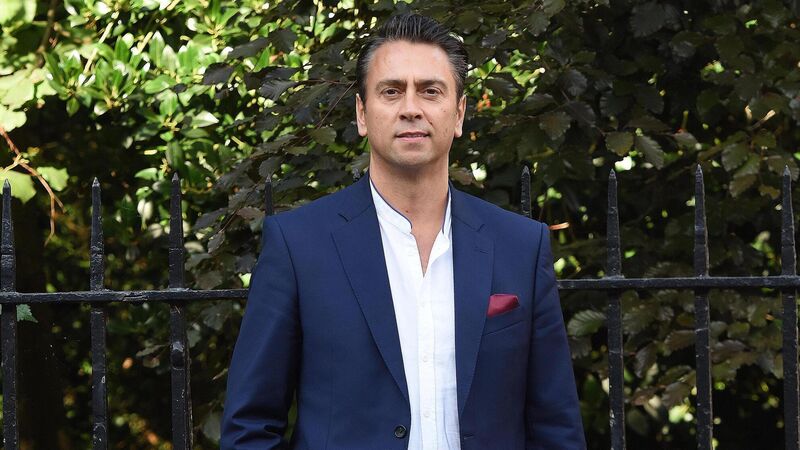Richard Hogan: Acting on impulse is how teenagers learn

Richard Hogan: "So what can we do as parents? Well, we need to talk to them when they are calm, helping them to access better thinking while also understanding that making mistakes is all part of the adolescent journey." Picture: Moya Nolan.
Adolescent brain development is characterised by an imbalance between two very important brain systems; the limbic and reward systems, which mature earlier, and the not yet fully mature prefrontal control system. This imbalance, neuroscience suggests, is the neural substrate for the typical emotional reactive style of adolescence, and more significantly, promotes risky behaviour.
Now, why in the world would the human brain develop like this? Why would logic and rational thinking develop after the emotional, reward and impulsive systems? Surely, it would make more sense for good thinking to develop first and then the impulse system to develop later.
But not so in homo sapiens. The answer to this evolutionary quandary lies in the fact that adolescence is a time of adventure and risk-taking. We are supposed to launch out in adolescence and make mistakes.
Those years between 13 and 25 are years of incredible learning. For many years, research into childhood development was interested in the early years of life; those first three years were explored with excruciating minutia.
But in recent times, we have developed a greater understanding of the adolescent brain. We now know the adolescent brain goes through a new phase of plasticity in which environmental factors can have major lasting effects on cortical circuitry. This is significant because it opens up new opportunities for the development of more advanced learning and education.
What all of this means is that in adolescence, we are supposed to get things wrong, because this is what helps us to recalibrate and get it right the next time. Those cortical columns are where we store all life experiences, and we are designed to have adverse experiences in adolescence to prepare us for adult life.
If you think about this for a moment, it explains it all so clearly. Anxiety is the fear of an unknown future event, coupled with the belief that you don’t have the skills to meet that event. What is the antidote to this? Experiences of overcoming negative life situations, so when you think of the future, you say to yourself, I’ve dealt with things before and I can deal with things again.
Anxiety decreases. So, we need more experiences in adolescence, not less.
I often sit with very confused parents. They are looking incredulously at their son or daughter next to them, wondering how could they make such a poor judgment call. Often the father asks an important question, ‘What the hell were you thinking?’
The answer is shocking to the parents, ‘I wasn’t thinking!’ But it is the truth. They did not engage the rational part of the brain, they were just consumed with an impulse of delight, they didn’t weigh up the consequences, they just went with the impulse. Like their brain is designed to do.
So what can we do as parents? Well, we need to talk to them when they are calm, helping them to access better thinking while also understanding that making mistakes is all part of the adolescent journey. When you think about anxiety and adolescence, why is it that we have such a surge in anxiety?
I think one important factor is that we don’t let our children play like we used to. When we were children, we were out there running around the estate, going out for hours, managing our friendships and difficult people.
Being picked last for the team, not getting picked at all, losing a match, friends letting us down etc.
All-important moments for learning how to regulate emotions. The modern playdate; parents standing around observing their children playing in a sanitised, cushioned room, where nothing can really go wrong. Not the kind of environment where children learn. Parents choosing the kind of friend they want their child to play with. Again, not the organic way children are supposed to play and make mistakes.
My parents never thought about organising a playdate, because we just went out and played. When I reflect on that childhood, it was golden in many ways. The carefree nature of it, the learning and development of that reservoir of skills. We have overcorrected that freeness and we need to move back to a version of it. Children need to play. But not how we think they should play, but how they want to play.
There are so many things going on for our children during adolescence. Hormonal changes are at work, too. The adolescent brain pours out adrenal stress hormones, sex hormones, and growth hormones, which in turn influence brain development.
The production of testosterone increases ten times in adolescent boys, and oestrogen increases significantly in girls. But let’s not forget that we, as parents, are going through changes too. Testosterone is decreasing by about 1 to 2 percent in men from 40 onwards, and women go through an incredible change in menopause.
So, the whole house can be a hormonal storm. We must not forget about ourselves, too. We are going through a lot while our children go through adolescence. One of the most important things we must not forget to do is to thrive in adult life.
Parents I talk with are so consumed with their child that they have lost themselves completely in all the busyness. But a healthy family is one where parents have an identity other than just mom and dad. Children need to see what being an adult is like. Fun!
Yes, adolescence is a tricky time. As parents, we are trying to minimise the mistakes they make, but mistakes they must make. But in all of this storm, we must not forget ourselves.










